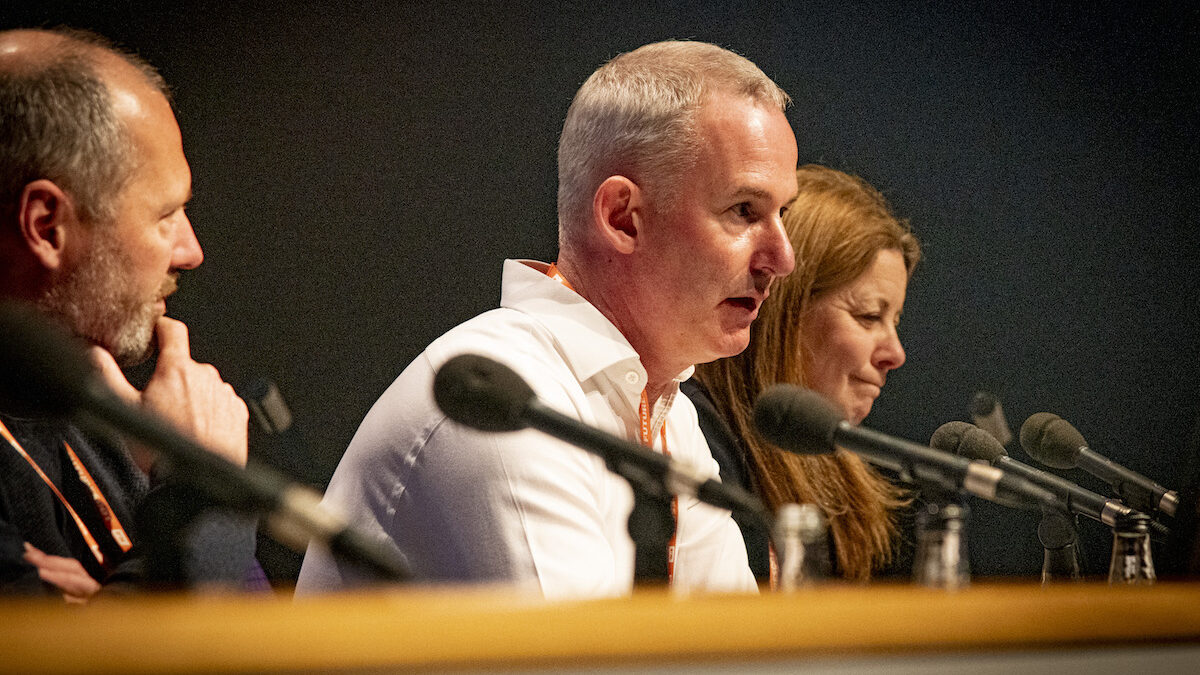A new up-skilling programme for computing science teachers being piloted in Scotland from today has been described by a former Skyscanner executive as ‘vital to the future of our tech industry’.
Mark Logan said the continuous development programme is designed to have a transformative impact on the provision of the subject in secondary education.
The four-week pilot for advanced higher computing science begins this week before the full up-skilling programme is rolled out later this year.
Scottish Teachers Advancing Computing Science (STACS) was set up in 2022 to advance computing science at school level, helping teachers to engage, nurture, and inspire the next generation of tech talent.
The pilot is run by five experienced teachers – starting today – and will be delivered via online tutorials.
Logan, appointed last year as the Scottish Government’s ‘chief entrepreneur’, said: “This programme is a key element in improving computing science provision across Scotland’s schools, which is vital to the future of our tech industry.
“Ensuring that all teachers are supported in developing their teaching confidence, and staying current with the evolution of computing science, makes the learning experience for students far more engaging.”
He added: “The model employs a unique network delivery model where more experienced teachers support less experienced teachers to develop, which enables us to cost-effectively deploy at national scale in one step. It’s a fantastic collaboration between multiple organisations and our teachers, for the good of Scotland’s young people and the tech industry overall.”
Led by computing science teachers Toni Scullion and Brendan McCart, and supported by a reference group made up of 12 computing science teachers nationwide, STACS was created in response to the education recommendations in Logan’s Scottish Technology Ecosystem Review.
Multi-award-winning Scullion, who has taught computing science for a decade, is also the founder of not-for-profit charity dressCode. McCart has been a computing science teacher in Scotland for almost 40 years.
Toni Scullion, STAC co-lead, said: “We have 69 Computing Science teachers signed up, from 54 schools and across 25 councils. It is a fantastic opportunity to bring computing science teachers together to learn from some of the most experienced teachers, who have a wealth of knowledge and great track records in their own schools. This is particularly important for computing science, as the majority of schools only have one or two-person departments.”
Brendan McCart added: “The aim is to develop strong understanding of the fundamentals of the Object Oriented Programming topic. We will focus on conceptual understanding, design notations, the notional machine of the SQA reference language as well as Python and Java among others. We will also address effective pedagogical methods using evidence from SQA reports and tutor-teachers with strong SQA experience. Teachers will spend 90 minutes per week over 8 weeks.”
We are engaged with every council in Scotland and 195 schools. STACS is here to work with and support computing science teachers. By seeing an uptake at computing science at school level, we know this will translate to the provision of much stronger digital skills to the wider economy. So, it’s that pipeline of tech talent that is expressed in the Logan Review.”
Education secretary Shirley-Anne Somerville said: “The development of digital skills will be a vital component in our economic recovery – which is why we are investing in the development of our computing science teachers. STACS has already provided a vast amount of value through the development of teaching resources available, and I am sure that the upskilling pilot will be beneficial in ensuring that the workforce is equipped for both present and future challenges.”




